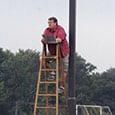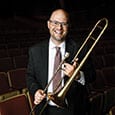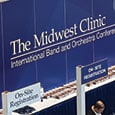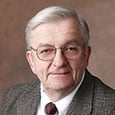As the school year nears its conclusion, we checked in with two legendary directors who made the bittersweet decision to retire from full-time teaching in the last couple of years. Darrin Davis began teaching in the Broken Arrow Public Schools in 1993. He attended Broken Arrow High School and knew from a young age that he wanted to lead the program someday. He is the Executive Director of Fine Arts for the Broken Arrow District, overseeing a team of 89 fine arts teachers who teach over 6,000 students. Greg Bimm led the band program at Marian Catholic High School in Chicago Heights, Illinois for 46 years. Both men are elected members of the American Bandmasters Association. A list of their combined accomplishments on the marching field, the concert stage, and in the classroom could fill this entire article. In this wide-ranging conversation with two music educators who have seen it all, they talk about lessons learned over the decades, the essential contributions from various mentors, and how much they miss daily rehearsals with their students.
While both of you are busy with a variety of musical activities, what do you miss most about teaching in class every day?
Darrin Davis: I greatly miss the daily interactions with students. I am in my first year out of the classroom every day and not with the band full time. I thought that marching band would be the one thing I wouldn’t miss, but I enjoyed that process so much and seeing the kids grow. I was a pretty emotional guy this fall. Every time I saw the band in uniform, it tugged at my heartstrings not to be able to do that every day. What I don’t miss is probably booster club board meetings, particularly when it was about budget.
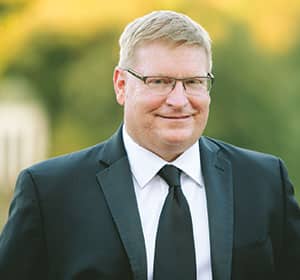
Greg Bimm: My experience is similar. I miss standing in front of the symphonic band and making music with those kids every day. That band was my home. Even at the rehearsals when we were making music at a base level, working on warm-ups and exercises and trying to make good sounds, every day was special. There were times when I went in sick as a dog, but for those 50 minutes I was lifted up.
I miss marching band, too, but I still do the drill for Marian. I get to go over to rehearsals and work with Steve Pyter, who took my place. He has been amazing at working with the band and keeping things going well. The students really adore him. He makes me feel at home and still connected to the program in exactly the right proportion. I particularly miss the nuts and bolts of marching band rehearsals every day.
I don’t miss some of the unpleasant details of the job. In June, after I retired a year ago, I was sitting at my desk and was still on the email for the band program. An email came through from a girl who was going to miss a rehearsal without a good reason. Immediately, my eyebrows went up, and I reached for my keyboard. Then, I realized that I don’t have to do that. It is not my problem. That was a really good feeling. I don’t miss that stuff at all, but standing in front of the kids everyday is beyond special. I miss that still and probably always will.
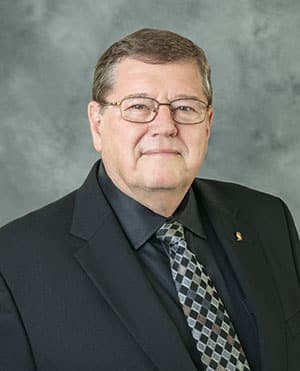
Darrin Davis: When I was still in the band room as director of bands, I would rarely leave a rehearsal, even if I was sick. There were opportunities to give clinics with other bands or work with an honor band. Almost without fail, I declined those opportunities because I didn’t want to leave my students. There is a bit of a hole that I am starting to fill now with the chance to guest conduct. Even with these new creative experiences, there was no feeling like standing on the podium with the Broken Arrow wind ensemble.
Greg Bimm: I also enjoy having the time to do honor bands, but there is nothing like looking in the eyes of the kids that you know and see every day. When you give a cue to your first flute player, you know who that person is – who they are, why they are, what their background is like. No matter how good the honor band is, although you can make great music, it doesn’t feel the same as making music with your own students.
What are the most important lessons you learned early in your careers?
Bimm: In my first year, I was finishing the second or third rehearsal with the marching band, and there was this kid who had a big grin on his face as I was being very serious. I gave him a hard time because I thought he was making light of what we were talking about. I didn’t know anybody yet and didn’t know him at all. I found out that he was a senior, a wonderful kid, and had gotten a 34 on his ACT.
When I got to know him better, I discovered that he had never learned scales. On one Wednesday, I taught him how scales are built. He came back on Thursday and asked me to name a scale. He could slowly play all of his major scales because he understood how they worked. I initially jumped to a conclusion with him, and he turned out to be wonderful student. When he graduated, I said, “Why were you grinning that first day?” He said, “I wasn’t grinning. You had us facing into the sun, and I was squinting.”
The larger lesson was learning how to develop a bag of teaching tools. When I started teaching, I had no tools. If the music was bad, I was going to just attack it mercilessly until the sounds were OK. Over all these years, I developed many different ways to accomplish the same thing.
As a young teacher, I may have observed a really good teacher but their approach might not be aligned with my personality. As I gathered tools over the years, I found out what works with my personality. When something goes wrong now, I have many choices on how to fix it. When I work with my own band, those choices always filter through who the student is.
Darrin Davis: There is the adage that when you are starting out, you don’t know what you don’t know. When I began teaching, it was before the internet. There was no way to search online for different resources to build that bag of tools. You learn when you are willing to be vulnerable and admit you don’t know everything. It didn’t take me long because as much as I had great colleagues at Broken Arrow, there were also other colleagues in the area who would say, “Come over to one of my rehearsals or bring your scores and let’s talk about some musical concepts.”
As a young teacher, I didn’t know the pedagogy nearly as well; you need to know all of the instruments to teach them and have multiple remedies to help kids improve their quality of sound. You need to learn alternate fingerings, and tuning tendencies to develop that pedagogical base. I had a great mentor in the area, Dean Coale, who taught with George Brite at the great Sapulpa High School. He allowed me to be a sponge, to listen and observe every detail about how he taught. That information helped me get the first layer in the bag of tools.
The process of adding new skills is lifelong. I was working with an honor band a couple of weeks ago and walked into a rehearsal of another honor band. I stole about ten different things. Some young teachers are reluctant to ask for help from a more experienced director. They would rather look something up online than have conversations with veteran teachers.
Something else that made a big difference in my early years was developing my concept of sound and paying attention to how it changes over time with different groups. It is interesting to listen to a recording from a year ago and another from 20 years ago to see how that concept of sound continues to evolve, particularly with advancements in literature and the increasing proficiency of the students. The need to keep learning never leaves us.
Bimm: I was just in Nebraska, and on the way to the airport, I was with a couple of college teachers, and we were talking about warm-ups. They shared some ideas I had never thought of before. I was very shy in those settings early in my career and still feel a bit that way. I was afraid to ask questions of other directors. Often, I would just be a fly on the wall. I remember watching John Paynter rehearsing the Illinois All-State band in the early 1980s, and I was working the equipment and making sure that whatever was needed for a session made it to the right place. While moving equipment from one rehearsal room to another, I always made sure that my path took me past the rehearsal hall. I remember standing in the doorway and watching John work. Every once in a while, he would look over his shoulder to the right and raise an eyebrow. He had worked with my band before. I was just trying to steal anything that I could
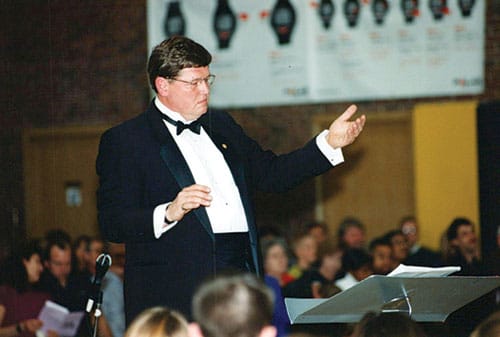
What do you admire about each other?
Davis: Greg has developed a program of enduring success. If you ask Greg about his feeder system, he doesn’t have one. His students come in at different playing levels, and he empowers his senior students to be mentors to the younger ones. This is a philosophy that every program in America can learn from. You do not have to change your level of expectations based on current skills. It’s about the skills we will learn. I have always admired how fine his concert bands were. He was a pioneer in the 1980s for getting a concert band sound to exist within the marching band. What Greg did for the activity in the 1980s became the standard for how we would create this concert approach to the marching. It was transformational. Look at what everyone is doing today as they try to make that concept even better.
Bimm: My knowledge of Darrin and Broken Arrow goes back to when they first started coming to Bands of America. The first time they won, I was standing on the sideline watching Darrin and their staff. Their eyes kept getting bigger as the announcements were going up through the places. When they were announced as the winners, they were so surprised, and I was so impressed by their humility. There was no assumption there that they were going to win. That’s the Darrin that I have known all of these years.
Their program is known coast to coast. Everybody knows Darrin Davis and Broken Arrow. They know the astounding history, and the crazy levels they reached. I heard Darrin’s band at ABA two years ago. What I remember is the Kallinikov (Symphony No. 1) The band was just off the charts. Within all of that, the program stays focused and that is a reflection of who Darrin is.
How do you approach daily warm-ups?
Davis: I want the students to be able to produce a characteristic tone and have control of their instrument so they can fluctuate and understand the variance of pitch. The beginning of the year is about creating those note shapes, like the bricks in a wall. Initially that is what we want the sounds to look like – consistent beginning, middle and end to the sound. Then we start defining what it means to play notes that are 75% sound and 25% silence, 50% sound and 50% silence, and then 25% sound 75% silence. From that foundation, then we develop a repertoire to shape notes that decay just as you would see a wave form on a digital device. To make an accent sound the way it looks with that sideways triangle. Do the triangles touch? Do they create distance or silence between the notes?
The beginning of our warm-up process is defining the consistency and quality of sound, note length, and note shape. These are the building blocks for everything else we do. I teach and emphasize the importance of sustaining a pitch and bending it to be in tune with the players around you. We have to get students to a level where they have the sensitivity so that even if they make the wrong decision, they are gradually training their ears to make better decisions.
When I started teaching, they didn’t have the TonalEnergy tuner yet. The advent of those tools has made a transformation in sound quality, purity of sound, and development of students’ listening skills. There was a time in my career when I thought the answer was for every player to have their own little tuner with one of those wires that clamps onto a bell. That is not the answer. The solution is to develop their ears. Those devices are good for the practice room, but not for creating ensemble skills and ensemble awareness.
To take it one step further, my process has a focus on what each individual student brings to the table. Can they make artistic choices on how a phrase should sound? When we start a piece of music, I may know exactly how I want to phrase it, but I want students to have a chance to see what their ideas are. Sometimes it affects my interpretations if I like the way someone interprets a phrase. Empowering students to make artistic choices was a huge part of my process at Broken Arrow.
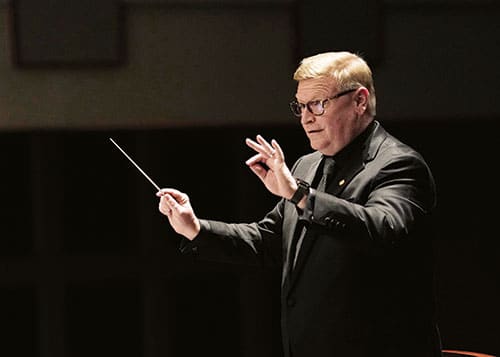
Bimm: Since I retired, I have had a chance to go into different band rooms and see different approaches to warm up. It has struck me that in a number of cases there is a lack of thinking and focus going on. During the time they are warming up, the groups go through a series of things without a clear focus from the director. Most importantly, it is not a period of critical thinking for students. They seem to roll through the warm-up exercises to get them out of the way and move on to reading the music for the next concert.
I looked at warm ups a bit differently with my groups. Even as we approached concerts, there were times when we spent a larger portion of time working on warm-ups and exercises than on the literature we were going to play. We used the same relative warm-ups in the same order each day, but they were built to be a bit different every day. We kept them “new” each day, so they could be adaptable for whatever we were playing and so that the students had to think to participate. Our students came to band at 11 AM after being in four other classes, so we needed to “warm up” their minds as well!
We started by playing all major and minor scales. Students arrived for band and 5 minutes later, a student would count off. The band would play the scales sequence. These director-less, self-starting scales created the idea that they had chosen to be practicing.
Our first director-led warm-up was always sight singing. As Darrin said, when we started, there was not the technology that we have today. To teach playing in tune, I used sight singing to train their ears and train them how to target pitches.
For sight singing we used the book Treasury of Scales by Leonard Smith. The first half of the season, we would sing the odd numbers (major keys) and during the second half, we sang the even numbers (minor keys).
The format was simple. If we were playing number 19 which I think is in Eb, we would start by playing and singing the Eb scale. Then, there were four parts to the exercise. First, we would sight sing the line (no stops-complete with errors), then we would play it, having the kids listen for what they had missed while singing. Third, we would sing it again having the students use what they had played to guide their voices. Finally, we would play the line having them let what they sang (their ears) guide their instruments. A good thing about Treasury of Scales is that each line has a simple whole note scale for one group. That helps when the harmonies are especially difficult. The rest of our warm-ups were also home grown and based on intentional focus.
Which mentors helped shape your teaching and the directors you turned out to be?
Davis: As a undergraduate in a small school in Missouri, my director said, “I’ve got concert tickets. We need to go.” It was the 50th Anniversary of the CBDNA in Kansas City and Frederick Fennell was going to conduct. I didn’t know much about Fennell at the time, but the concert transformed everything that I thought about music. I was hungry for all those old LP recordings. Now you can pull any of that stuff up on YouTube and see rehearsals with great conductors working with different bands. Fennell’s approach to pulling the music out of an ensemble, no matter how experienced, was just magical.
While doing my master’s degree, I worked with the band program but also spend part of my time with the music education department. There I met Professor Gerald Siverson, who was one of Fennell’s four conducting students at the University of Miami. It began a conversation and collaboration with my new major professor but also a connection to learn from Maestro Fennell. I actually had the opportunity to have a conducting lesson with Fennell as a part of my studies with Gerald Siverson.
We meet certain people in our lives for a reason, and they become transformational. I didn’t decide until just a couple of months before high school graduation that I wanted to be a music major instead of an engineer. I went to my high school director, Ken Grass, and said I want to be a band director, and I want your job someday. He was the Director of Bands at Broken Arrow High School, and I felt it was the only place that I could go. He said you don’t want this career path because it doesn’t pay very much. He went through the reasons why he didn’t think it was a good choice. I went up to him two days later and said, “I’ve thought about it more, and I really want to be a band director.” We became very close. He told me that after the second or third time I said I wanted to be a band director, he realized that I might have a chance. He helped put me on a path to being successful.
In the last 25 years or so, Professor Thomas Leslie from UNLV has been a huge influence on my life. Learning how he approaches sound and musicianship has been so valuable for me. I call him my big brother because he means a lot to me on a personal level but even more on a musical level.
Greg Bimm: I decided to be a band director in fifth grade. I got hooked pretty quickly and have always pursued that. I had two band directors in high school, Christopher Izzo and Mel Pontious. Both of them had a profound influence on me. The program was really high level and could play pretty much everything. Both directors were brilliant musicians with different styles. Mr. Izzo was a fiery Revelli-like person, and Mr. Pontious was more cerebral in the most positive way. I got the best of both worlds. That probably was the single thing that set me on a path so that I could be successful later on. Mr. Izzo is gone now but we stayed close all of his years. Mr. Pontious is still alive and well. I’ve thanked him so many times. One of the things I thank him for was when I was in freshman band in high school, he had us play the Chaconne from the First Suite in Eb. The program was very special.
After that, some of the people who influenced me are household names. I got to know John Paynter, whose brilliance was mind boggling. He was a special person from the musical side. He did transcriptions, and that’s probably one of reasons I’ve done a few transcriptions because I wanted to be like that.
William Revelli was another major influence although his style would probably not fit in today’s world. I had a discussion with someone once about how if Revelli was a band director now his course would be different. His goal was to make great music, so he would probably do that in a different fashion now.
I got to talk with Revelli once when I was his guide. I picked him up in Peoria, Illinois and drove him for two hours. He was a very normal guy. I was driving Mr. Izzo’s Cadillac, and Revelli looked at me and said, “Is this your car?” I told him I drove a trashy old Chevy, and he said that he drove an old Chevy too, so we talked about nasty old cars for a while. There were moments, too, when I saw a different side of him as a musician. I sat next to him at a concert as a band was playing The Alcotts by Ives. Revelli leaned over to me and said, “What’s wrong with this band?” I started to analyze and said the French horns a little bit sharp and everything else I could possibly dig out because I didn’t want to be wrong. He still said no. Then he said, “They’re over-regimented.” Basically, the director was such a dictator, and the time was so strict that the music couldn’t sing at all. This was Revelli, who was notorious for being powerful and demanding. For him to say that the band was over regimented changed my perspective.
Both Paynter and Revelli made the same comment to me in a different way. Before I met Revelli in person, I spoke to him on the phone early in my career. I asked what advice he would give to a young band director. He simply said, “Wear out the seat of your pants studying your scores. That is the biggest key. If you really dig in, you learn to love the music, and you learn the music well enough that you can get it into the band that is going to perform.
John Paynter shared the same lesson when we were standing backstage at a concert where we were both going to conduct. He leaned over and said, “If you watch closely at all, you can really tell the directors who study their scores.” Then he just gave me a wry smile.
Greg Bimm and his bands have won first place in its class in the Illinois State Marching Championship 42 straight times. Bimm also led the Marian Catholic Symphonic Band which has been named honor band in its class at the University of Illinois SuperState a record 10 times. The marching bands won seven Bands of America Grand National Champions, 21 BOA National Class Championships, and 34 consecutive BOA National Finalist appearances. He earned degrees from Illinois State University, Western University, and received an honorary doctorate from VanderCook College of Music.
Darrin Davis has performed with bands at the 88th ABA Convention, the Midwest Clinic, the Music for All National Concert Band Festival and six times as featured honor band at the Oklahoma Music Educators Conference. Broken Arrow is a 30-time Oklahoma State Marching Band Champion, 17 BOA Grand National Finalist, and a four-time Bands of America Grand National Champion. Davis earned degrees from Missouri Western State University and the University of Tulsa and maintains a busy schedule of guest conducting and clinic appearance.
